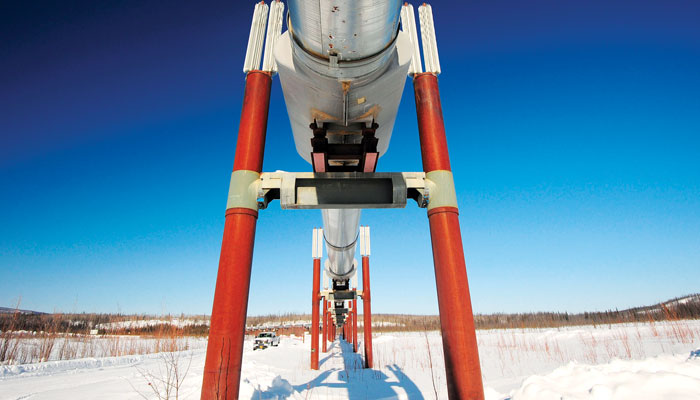Growing U.S. oil production has led to recent calls by the oil industry to lift the 40-year-old ban on crude exports. At issue are U.S. policies that were enacted following the Middle East oil embargo back in 1973.
For 40 years, Americans were unified in our goals to reduce our dependence on foreign oil and create a new path toward energy independence. We would become energy efficient, create new technologies, and develop alternative sources of energy to be self-sufficient. We didn’t want to have to rely on imported oil from countries that the United States considered unfriendly.
Until recently, exporting U.S. crude was not an issue, because we imported so much oil from the rest of the world. Advances in drilling technologies (hydraulic fracturing, horizontal drilling, and seismic imaging) have opened up vast resources of “tight” oil to exploration in the U.S.
Now that we’re close to achieving the goal of reducing our foreign oil dependence, there are several viewpoints and discussions to consider as we ponder what energy independence means.
How Dependent on Foreign Oil Are We?
Last year, U.S. crude production increased to 7.7 million barrels a day from 6.5 million barrels a day in 2012. At the same time, U.S. oil imports declined by 9 percent to reach the lowest level since 1995, and U.S. exports of diesel and gasoline have increased by about 11 percent. Changes in imports and exports accounted for an impressive reduction in the nation’s petroleum deficit by about $59 billion (around 20 percent) to $233 billion.
The reduction in imports and the increase in exports accounted for a $63 billion reduction in the nation’s overall trade deficit last year to $471.5 billion – the lowest it’s been since 2009.
What Would Energy Independence Look Like?
Next year, the U.S. is expected to become the world’s leading oil producer. Oil production is expected to increase another 16 percent by 2020, making the U.S. a net exporter of oil and virtually self-sufficient in oil production.
Energy analysts estimate that the oil boom has created about 1.7 million U.S. jobs from 2008 to 2012, and could create another 3 million jobs by 2020. Many analysts suggest that U.S. energy independence is not a sensible goal, and that imports add value to both our national economy and energy security.
What About Canada And Mexico?
Almost half of U.S. oil imports come from Canada and Mexico. Some people believe that a North American energy alliance of the United States, Canada and Mexico would provide better energy security and offer new economic opportunities for all three nations.
Canada is anxious to get their crude from the Alberta oil sands to the global market. After five years, they’re still waiting for U.S. approval of the Keystone XL Pipeline. Meanwhile, Mexico’s oil exports to the U.S. are declining, and without significant investment in pipelines and infrastructure, many feel Mexico could miss out on the U.S. and Canada oil boom.
What About Energy Security?
Energy plays an important role in the national security of any country. While energy independence deals with supply and price stability, energy security also focuses on things like improving infrastructure and delivering energy more efficiently. It also addresses challenges and threats that help shape energy policy. For Americans, reducing foreign imports and achieving energy independence have been essential for our nation’s energy security.
Why Lift The Ban On Crude Exports?
Oil producers point out that we’re entering “a new era in energy” and the energy policies of the 1970s (like the ban on crude exports) no longer apply. As energy production continues to grow, both the U.S. and Canada will increasingly be looking at the global market for growing economies with long-term oil demand.
Just about everyone agrees that ending the ban on crude exports would turn our trade deficit around and put our economy back on its feet. There is also agreement that U.S. crude exports would keep downward pressure on prices in the global market while adding a level of stability. With U.S. crude in the global market, being affected by the Middle East isn’t the same as being dependent on it.
The big disagreement comes when the topic turns to domestic gasoline supply and whether prices will go up or down. Not surprisingly, environmental groups strongly oppose crude exports, since exporting would increase global supply, driving oil prices down and making biofuels and renewables less affordable. They also believe that any investments in developing fossil fuels reduce the pressures to find alternative fuels.
There are opportunities. Improvements in energy efficiency, development of renewables and green technologies could provide new global opportunities for U.S. companies as countries transition toward a cleaner, less-carbon-intensive mix.
Our dependence on foreign oil is not the only factor in energy politics; we’re still facing the same environmental issues and climate change challenges. Maybe we’re not really entering a new era in energy, but more of a new era for the U.S. economy.


